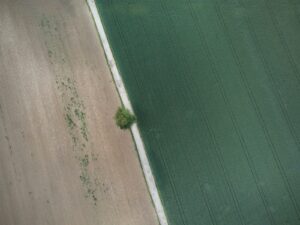Researchers have identified a new method of soil-free farming that can help to improve food security as climate change and soil erosion limit our ability to grow crops.
The research, which was conducted by scientists at the University of Bristol, John Innes Centre and LettUs Grow, highlights how vertical farming can help to produce consistent crop yields, improve price stabilisation and encourage food cultivation in places that are incompatible with certain crops such as the desert or the arctic.
Vertical farming is a type of indoor agriculture where crops are cultivated in stacked systems with water, lighting and nutrient sources carefully controlled.
The researchers tested aeroponic cultivation methods which use nutrient-enriched aerosols in place of soil that is then applied directly to the roots.
This method is believed to lead to up to 70% greater yields of crops.
There are many environmental benefits of such techniques, including better use of space because vertical farms can be built in disused urban locations, fewer food miles, reduction in soil degradation and nutrient and water recapturing and recycling.
Lead-author of the study, Bethany Eldridge from the University of Bristol said: ‘Given that 80% of agricultural land worldwide is reported to have moderate or severe erosion, the ability to grow crops in a soil-free system with minimal fertilisers and pesticides is advantageous because it provides an opportunity to grow crops in areas facing soil erosion or other environmental issues.
‘We are aware that higher yields can be obtained from plants grown in aeroponic vertical farming set-ups, however, we still have relatively little knowledge about how plants grow and respond to the soil less growing environment during aeroponic cultivation.
‘This knowledge would be important for fine-tuning the growing environment to encourage the growth of these beneficial microbes or the development of a probiotic mixture, similar to a probiotic yoghurt, that could be added as a supplement to help boost plant performance.’
Photo Credit – Pixaba y
















